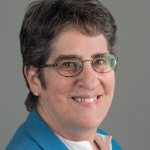A person living with lupus may feel isolated. They receive information from their doctor, but it’s never enough to fully understand the disease. So where do they turn? Social media, where they can connect, share information and learn. A new social media initiative, Hablemos de Lupus—which translates to Let’s Talk About Lupus—focuses on sharing…





